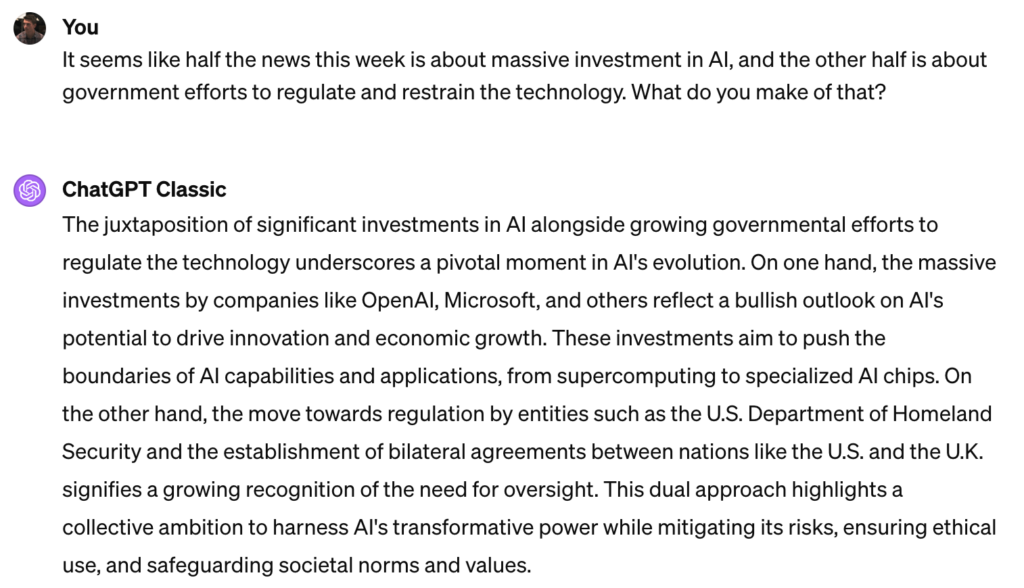Welcome to the newest edition of FindBiometrics’ AI update. Here’s the latest big news on the shifting landscape of AI and identity technology:

OpenAI and Microsoft are planning to build a $10 billion supercomputer to power their next-generation AI efforts, reports The Information. Tentatively called “Stargate“, the supercomputer will likely be financed mainly by Microsoft, and is expected to be located in the United States.
SK Hynix says it will build a $3.87 billion memory chip packaging plant and AI research center in Indiana. Bloomberg describes SK Hynix as the world’s No. 2 memory chipmaker; it plans to start mass production at the plant in the second half of 2028.
Scale AI is in talks to raise funding that would bring its valuation to about $13 billion. The company specializes in data labelling, a crucial aspect of AI training, and counts OpenAI among its customers. The venture capital firm Accel is leading the new funding round.
Hailo has closed a $120 million Series C funding round, with total funding now in excess of $340 million. It has also unveiled its new Hailo-10 generative AI accelerator, designed for large language model processing with low power consumption. Hailo has established a presence in the facial recognition space through offerings such as its “QVR Face” solution.
SiMa.ai has raised $70 million through a funding round led by Maverick Capital. The Silicon Valley startup is working on AI chips that are dedicated to inference, rather than AI training—that is, they would enable devices like cars and robots to use their AI training in the field, such as by identifying objects or recognizing people. SiMa.ai has now raised about $270 million in total.
Proposed legislation would mandate the Department of Homeland Security with coming up with a plan to integrate AI, machine learning, and nanotechnology into its border control efforts. The bipartisan Emerging Innovative Border Technologies Act was introduced to the House by Representatives Lou Correa, D-Calif., and Morgan Luttrell, R-Texas.
The White House has issued a mandate for federal agencies to enforce robust safeguards for the use of AI by December 1. Agencies are required to perform risk assessments, establish governance standards, and enable public opt-out from AI programs like facial recognition in TSA screenings. The mandate also requires certain public disclosures on the use of AI.
The United States and the United Kingdom have signed a formal agreement to cooperate on testing and risk assessment for AI models. It’s the world’s first bilateral AI safety agreement, and will see the UK’s AI Safety Institute pool resources and expertise with its US counterpart.
OpenAI has revealed its own voice cloning model, dubbed “Voice Generation”. The company says it can create a synthetic voice from just 15 seconds of speech. OpenAI is currently working to assess the risks of the tool, and suggests it might be time for organizations like banks to start phasing out voice-based authentication.
The chatbot’s take: Not to put too fine a point on it, but we wanted to highlight a key them in this week’s update.

–
April 4, 2024 – by Alex Perala








Follow Us